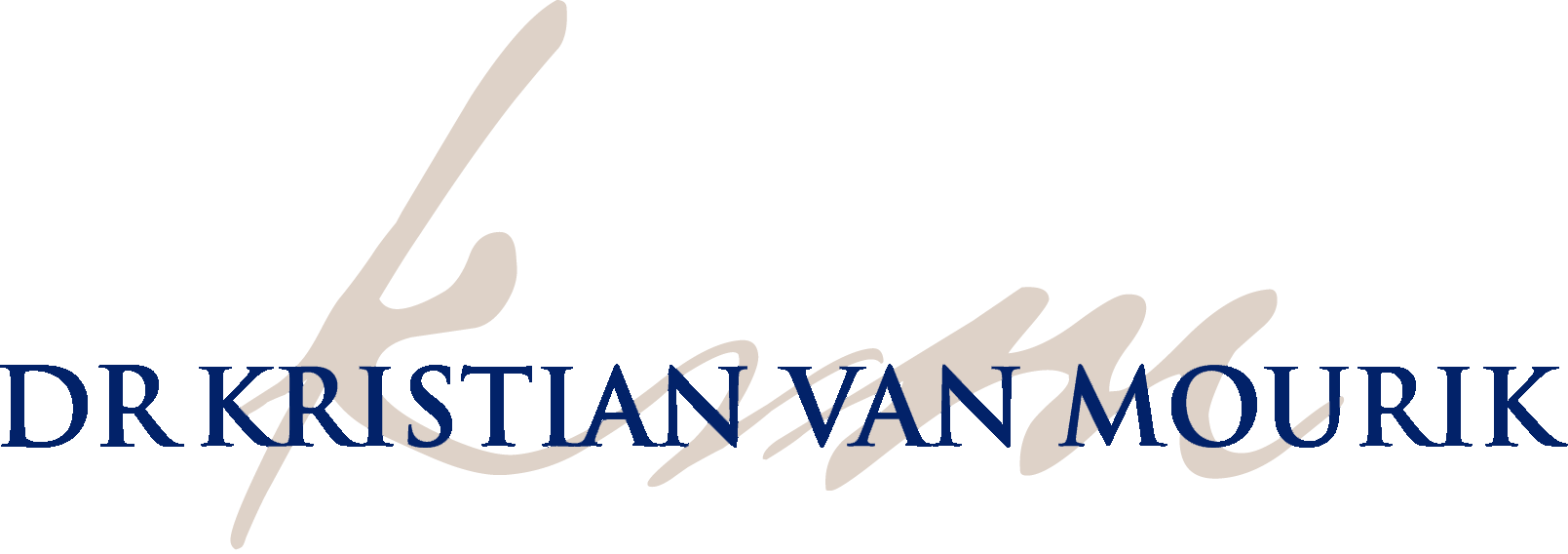A specialised implant solution for patients with severe upper jaw bone loss.
Zygomatic Dental Implants
Zygomatic implants provide a secure foundation for full-arch tooth replacement when traditional implants or bone grafting aren’t possible. Dr Kristian van Mourik offers zygomatic implant surgery with high long-term success rates and rapid restoration.
Specialist Zygomatic Dental Implant practice with over 18 years of experience. Experience the pinnacle of expertise and the smoothest recoveries in Zygomatic Dental Implant Surgery Sydney.


Our practice has provided comprehensive zygomatic dental implant treatment for over a decade.
Every case is carefully planned to assess bone structure, guide placement and ensure long term zygomatic implant stability.
With two established clinics we focus on
- Tailoring care to each patient’s needs.
- Clear communication.
- Highest level of surgical proficiency.
Dr Kristian Van Mourik Associations & Accreditations










What are Zygomatic Dental Implants?
f you’re considering an implant-supported denture in your upper jaw, the bone needs to be strong enough to hold the implants securely. When the upper jaw doesn’t have enough bone, there are two options:
- Bone grafting adding bone to strengthen the jaw.
- Zygomatic dental implants a specialised type of implant used when grafting isn’t ideal.
Zygomatic implants are longer than standard implants and anchor into the cheekbone (zygoma) instead of the upper jaw. This gives excellent stability when there isn’t enough jaw bone to work with. A major advantage is that a denture can often be fitted within 1–2 days after zygomatic implant placement — unlike bone grafting, where you may be without a denture for several weeks or longer.
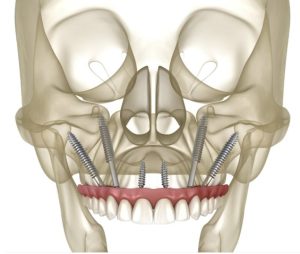
Problems Caused by Missing Teeth
Tooth loss can affect both oral health and overall wellbeing. Many Sydney patients choose dental implants to restore comfort, confidence, and function after experiencing:
Difficulty chewing
Missing teeth can make it harder to eat comfortably and may affect diet choices.
Changes to speech
Spaces in the mouth sometimes alter the way words are pronounced
Bone loss
Without tooth roots, the jawbone can gradually shrink, affecting appearance and limiting future treatment options.
Shifting of nearby teeth
When a tooth is missing, surrounding teeth can drift into the space, changing bite alignment and increasing wear.
Jaw strain and imbalance
An uneven bite places extra pressure on the jaw joints (TMJ), sometimes leading to pain or stiffness.
Reduced confidence
Missing teeth can make people feel self-conscious about smiling or eating in public. Replacing them helps restore a natural look — and confidence.
Zygomatic Dental Implants Pros and Cons
Zygomatic implants are considered to be a durable, long-term solution for multiple teeth replacement of the upper jaw. Below is a breakdown of their benefits and potential downsides.
Pros
- Fixed replacement option to top jaw dentures
- Does not require good bone density required by typical denture supported implants
- Does not required bone grafting of the upper jaw
- Can be restored quite quickly after surgery, do not have to wait long for implant to integrate
- Highly durable, potentially lasting decades
- Restores full chewing and speaking ability
- Mimics the look and feel of natural teeth
Cons
- Recovery can take a couple of weeks
- Requires surgery
- Upper jaw implants can cause sinus infections or discomfort
- More costly than removable options like dentures
How Long do Zygomatic Implants Last?
Zygomatic implants are designed to be a strong, long-term solution for patients who need full-arch restoration. Research shows they have an excellent long-term success rate:
- A study in the Journal of Oral and Maxillofacial Surgery reported a 95.5% survival rate at 5 years and 91.6% at 10 years.
- Another study in the International Journal of Oral and Maxillofacial Surgery found a 10-year survival rate of 91.8%.
With proper care, zygomatic implants can last for many years, providing a stable, secure and natural-looking result.
The outcome also depends heavily on the skill and experience of your surgeon.
Dr van Mourik brings exceptional training in implant surgery and uses only premium implant systems (Straumann and Nobel Biocare) to ensure long-lasting, high-quality results.
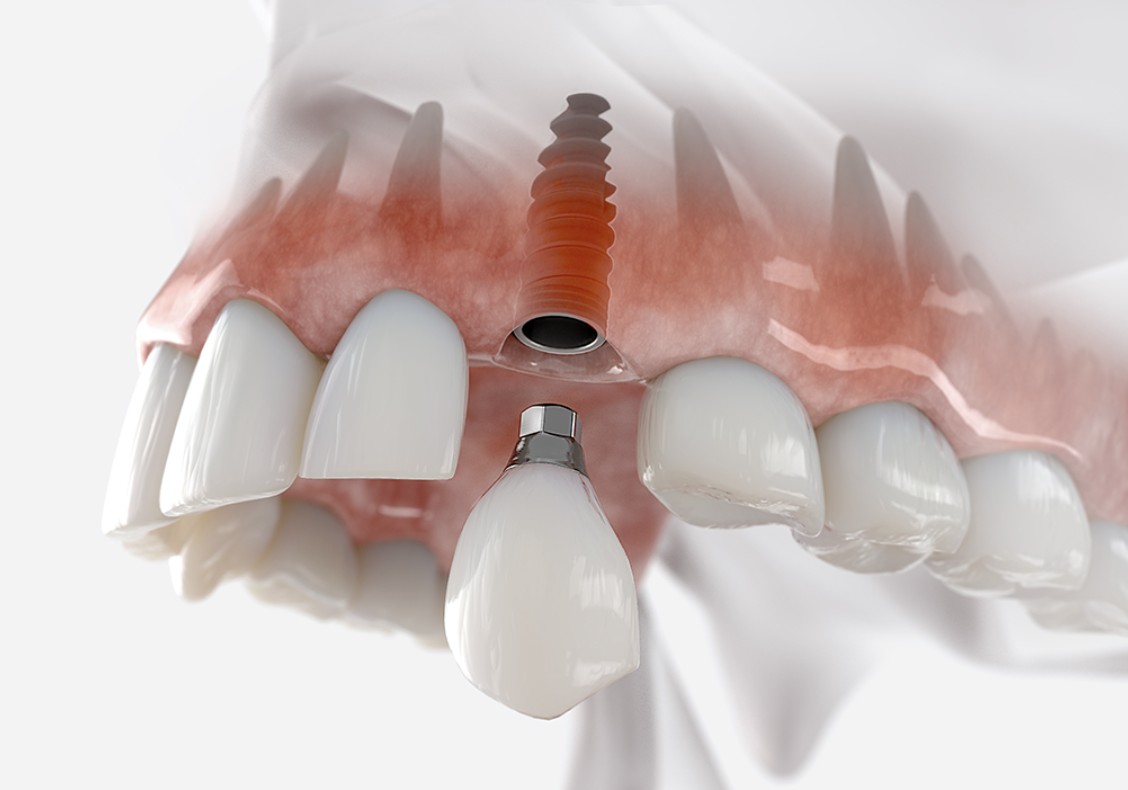
Zygomatic Dental Implant Process Step by Step
Zygomatic dental implants require careful planning and precision from your surgeon. When performed by experienced hands, the process is smooth and straightforward for patients. Here’s an overview of what zygomatic implant treatment involves.
Step 1: Consultation
At your first visit, Dr. van Mourik will perform a thorough examination of your teeth and gums, including X-rays and 3D scans. He’ll review your medical history, assess bone volume and density, and evaluate nearby blood vessels, sinuses and nerves to confirm if dental implants are right for you.
You’ll have the chance to discuss alternative treatments, ask questions, and receive a detailed treatment plan if implants are the best option.
Step 2: Treatment Planning
Using advanced software, Dr. van Mourik carefully plans the precise placement of your zygomatic implants to maximize bone support and avoid critical structures like blood vessels, and nerves.
During this phase, your replacement teeth are custom-designed to blend seamlessly with your smile and function naturally.
Step 3: Implant Placement
The titanium implant is placed in a minor surgical procedure, typically under general anesthesia in a private hospital.
Once the implant is secured in your zygomatic bone, you can usually leave right after an hour in recovery. You will be provided with a ‘temporary’ set of denture teeth which can start to be worn within 24 hours after surgery.
Step 4: Healing and Restoration
The implant fuses with your zygomatic bone through a process called osseointegration, which takes 3–6 months.
Once fully healed, your permanent denture is attached by your referring dentist and you will be taught how to clean and care for your new teeth.
How long does tooth implant surgery take?
The duration of a dental implant procedure varies based on the number of implants, the complexity of your case, and the surgeon’s expertise.
With Dr. van Mourik’s extensive experience and hundreds of successful implant placements each year, a single implant can often be completed in 5 to 20 minutes.
More complex cases, such as those involving multiple implants or bone grafting, may require additional time.
Will I be awake during the procedure?
With Dr. van Mourik, many patients remain awake and comfortable with local anesthesia, which completely numbs the treatment area.
For those feeling anxious, we offer sedation to help you relax during the procedure.
For cases performed in a day hospital, a general anesthetic is administered by a fully qualified anesthetist. Dr van Mourik operates exclusively with Fellows of the Australian and New Zealand College of Anesthetists (FANZCA) to ensure the highest standards of safety and comfort throughout your treatment.
anxious, we offer sedation to help you relax during the procedure.
For more complex cases performed in a day hospital, a general anesthetic is administered by a fully qualified anesthetist. Dr van Mourik operates exclusively with Fellows of the Australian and New Zealand College of Anesthetists (FANZCA) to ensure the highest standards of safety and comfort throughout your treatment.
Recovery After Zygomatic Dental Implants
Day surgery: If you’ve general anaesthetic or IV sedation you will require someone to assist you get home. If done under local anaesthetic, you can drive home yourself.
Pain management: Most people are surprised to find that pain is minimal. Normal painkillers such as Nurofen® and Panadol® are usually all you’ll need. An icepack can help reduce any swelling or pain.
Work/School: Most people return to work a few days after surgery. This will depend on the number of teeth being extracted, the extent of the surgery and your general health.
Stitches: Dissolving stitches are used in most cases. They gradually dissolve over 1-2 weeks.
Diet: Soft food diet for a few days after surgery. By 1-2 weeks after surgery you’ll most likely be eating and drinking normally.
Follow up: Dr van Mourik’s registered nurse will see you after your surgery to monitor your healing.
Dr Van Mourik will give you detailed post-operative instructions during your initial consultation. To maximise your chance of making a quick recovery without complications, please pay careful attention to these instructions
How to Look After Your Zygomatic Dental Implant
With the right care, zygomatic implants can last a lifetime. Looking after them is very similar to caring for natural teeth.
Here are some important implant care tips:
- Brush your teeth twice a day for two minutes using a soft-bristled or electric toothbrush.
- Clean between your denture and the implant with dental floss, interdental brushes or a water pix to remove plaque and food particles.
- Replace your toothbrush every few months to maintain effective cleaning.
- Use an antibacterial mouthwash once or twice a day to reduce bacteria around the implant.
- Limit sticky or hard foods that may put stress on your implant.
- Avoid smoking, as it can weaken bone health and reduce implant success.
- Visit your dentist or dental hygienist at least twice a year for professional cleaning and a check-up.
By following these simple steps, you’ll help keep your zygomatic implants strong, healthy, and long-lasting.
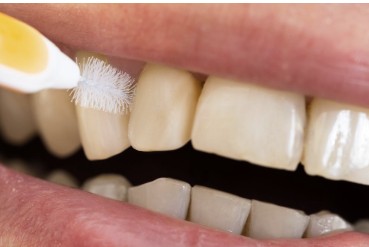
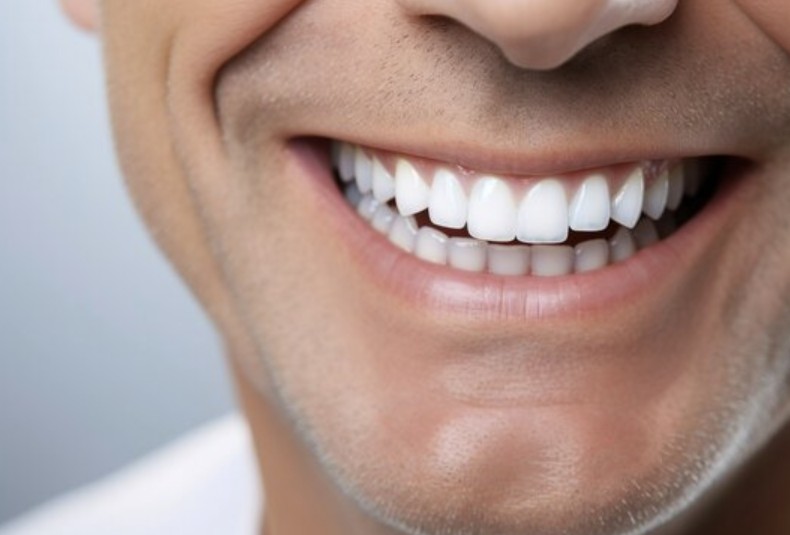
Zygomatic Dental Implants Before and After
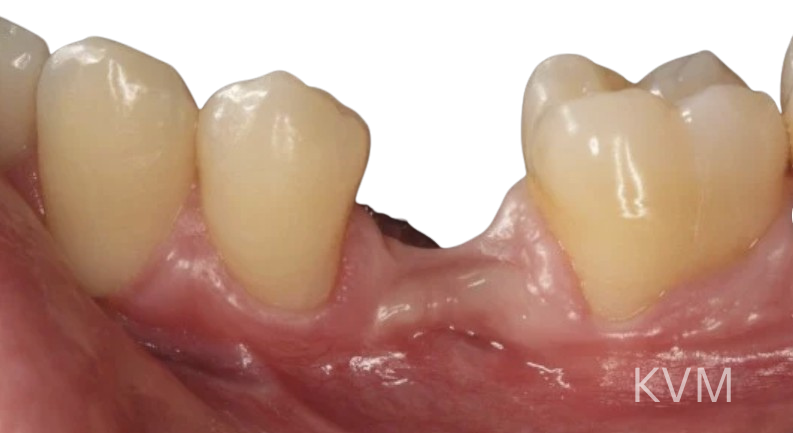
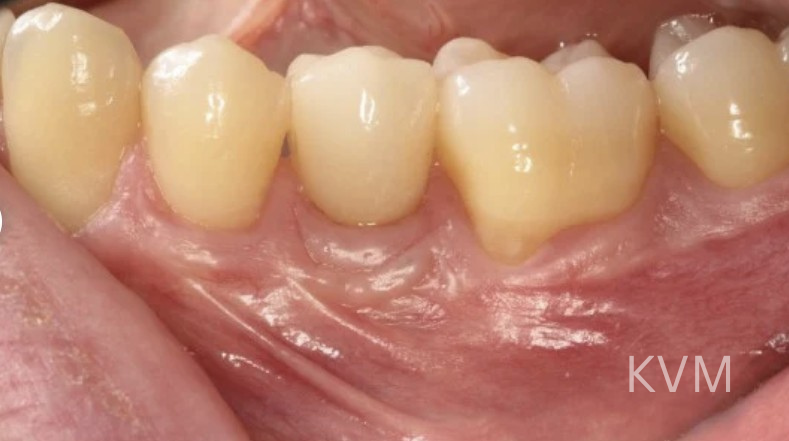
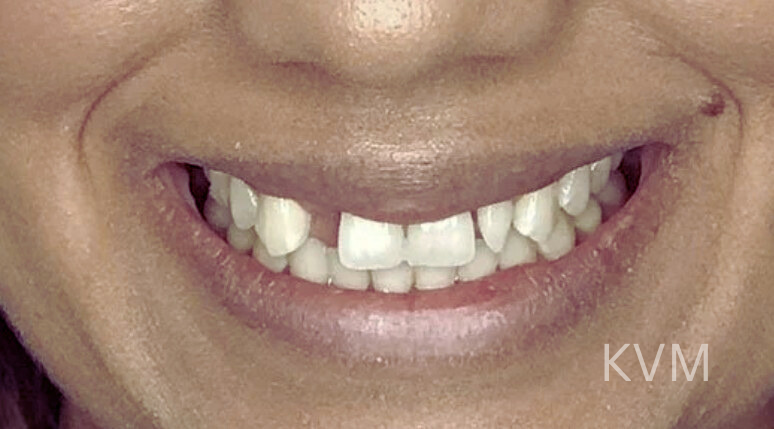
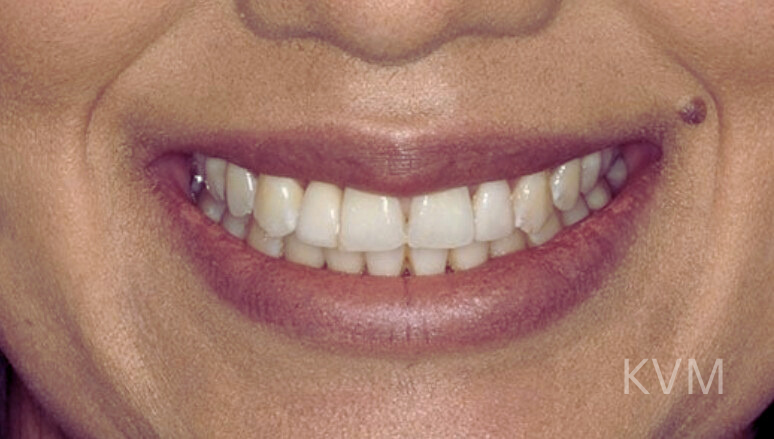
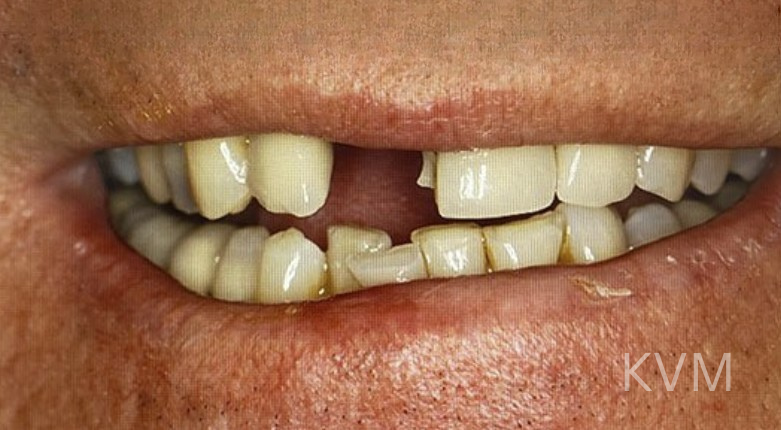
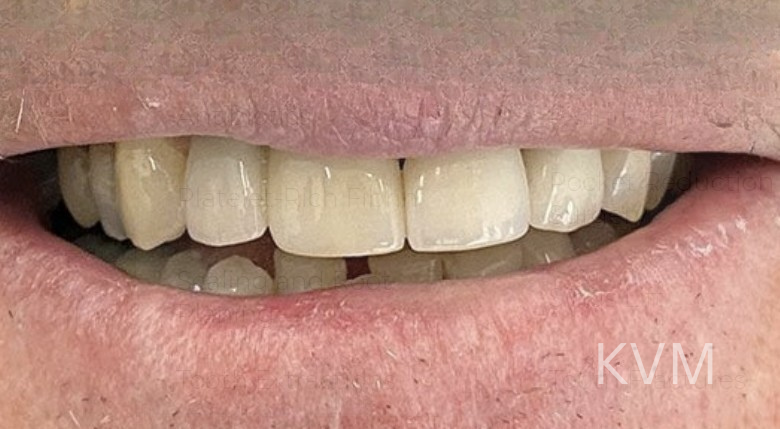


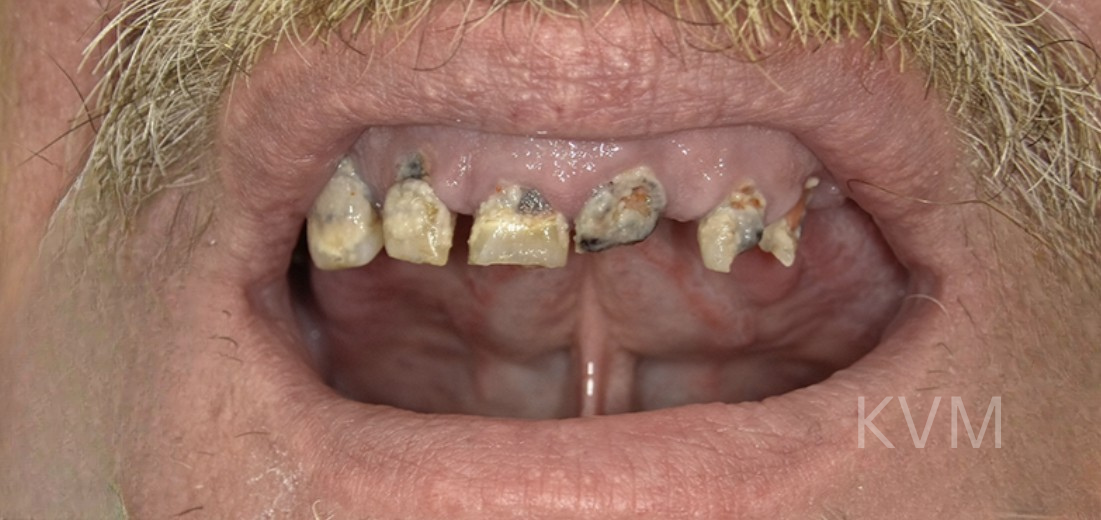
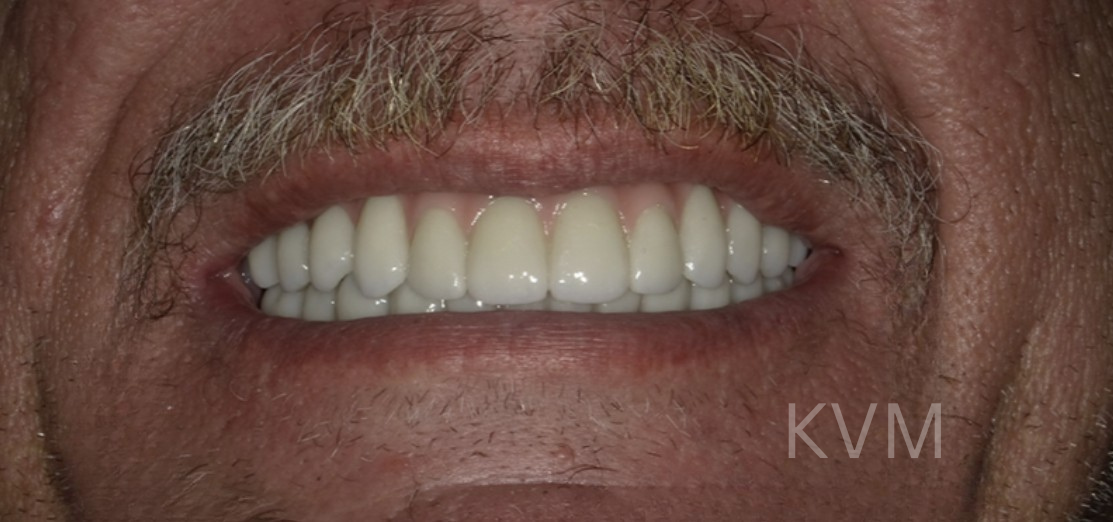
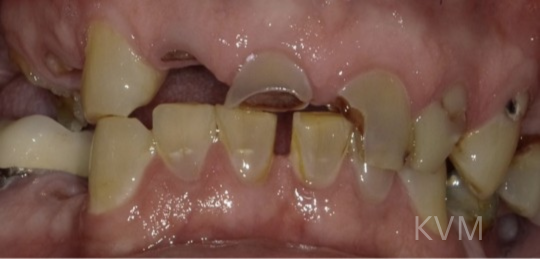
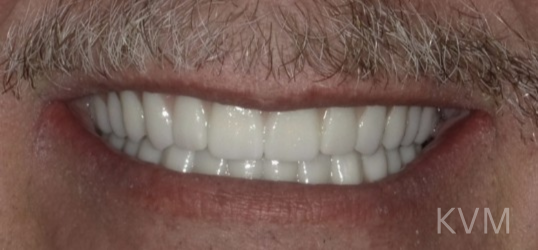

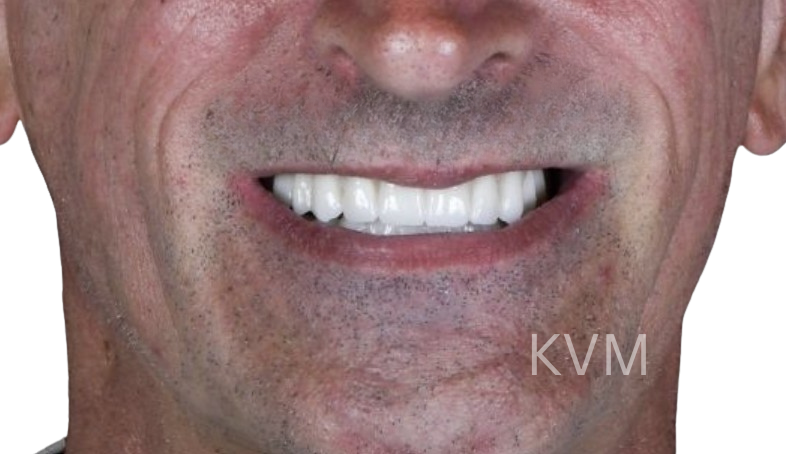
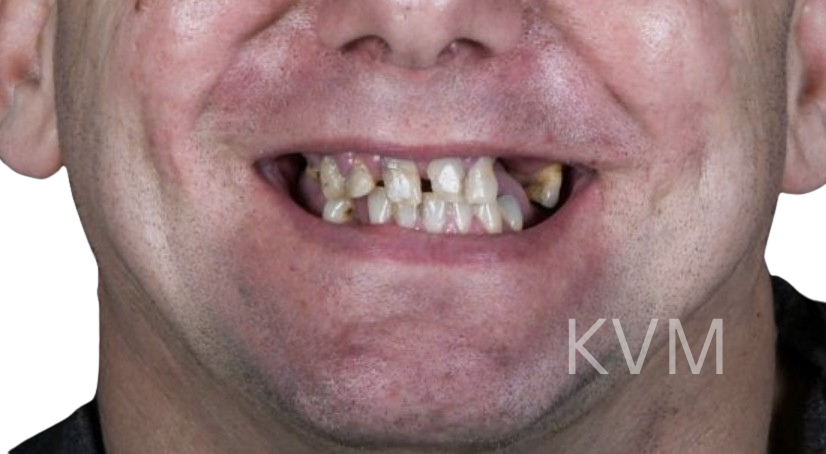
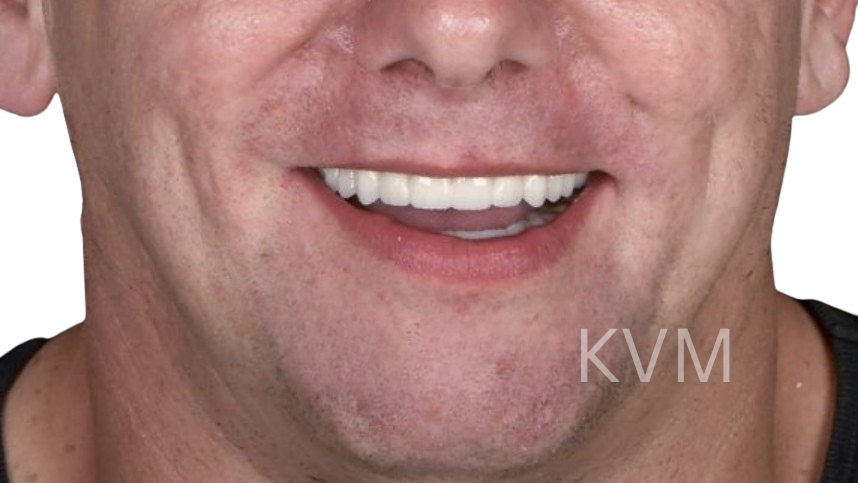
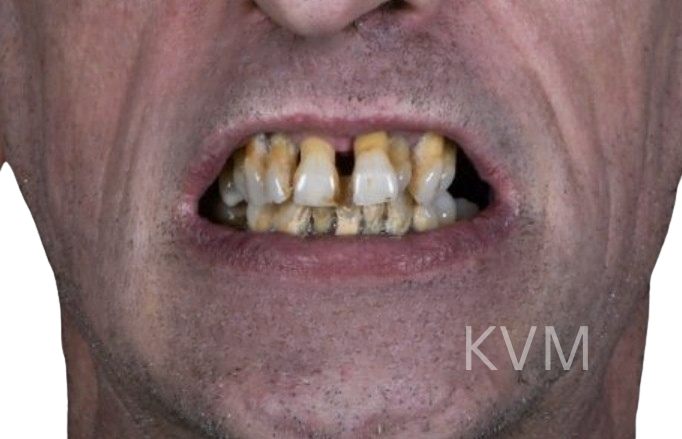
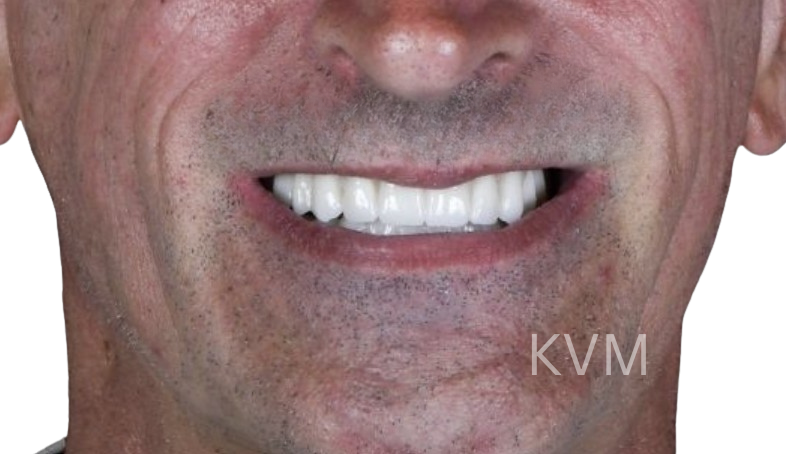
Cost of Zygomatic Dental Implants in Sydney
Zygomatic implant costs in Sydney vary depending on several factors, including:
- Number of implants required
- Complexity of your bone structure
- Whether bone grafting is needed
- Type of anaesthesia and where the procedure is performed
As this is a routine procedure for Dr van Mourik, who is highly experienced in even the most complex cases, you can feel confident you’ll receive expert care at an affordable price. You will receive:
- A written, itemised quote that can be submitted to your private health fund to check available rebates
- Separate details and fee schedule from the anaesthetist for procedures requiring a general anaesthetit. Medicare and private health insurance usually cover most of the anaesthetist’s fee, but not the full surgical cost
We offer flexible finance options to help make high-quality zygomatic implant treatment accessible and budget-friendly
Why Seeing an Oral and Maxillofacial Surgeon Matters
Zygomatic dental implants are a complex procedure that requires specialist training.
Oral and Maxillofacial Surgeons have the highest level of training and skills in dental implant surgery, having qualified as a surgeon, a doctor and a dentist.
They regularly perform zygomatic dental implant surgery and offer the highest standard of surgical care. An Oral and Maxillofacial surgeon’s approach ensures:
- Expert precision: Surgery performed efficiently and to the highest technical standard
- Faster recovery: Less trauma to surrounding tissue and bone
- Lower risk of complications: Reduced chance of infection or implant failure
- Comprehensive care: Surgeons are trained to manage any complications, should they occur
- Long-term results: Treatment guided by the latest medical and dental research
Dr van Mourik is widely regarded as a leading authority in zygomatic implant surgery, and is a sought-after educator who runs Australia-wide implant courses for dentists.
Trust an Oral and Maxillofacial Surgeon for the best outcomes for your zygomatic implant surgery.
Meet Dr Kristian van Mourik
Dr Kristian van Mourik is a fully qualified Oral & Maxillofacial Surgeon with more than 15 years of specialist practice in Sydney. He holds dual degrees in medicine and dentistry, supported by extensive surgical training, making him one of the few surgeons in Australia with this level of expertise.
Academic background includes:
- Bachelor of Biomedicine – Monash University
- Bachelor of Dentistry with Honours – University of Sydney
- Bachelor of Medicine / Bachelor of Surgery – University of Sydney
His practice covers the full scope of oral and maxillofacial surgery, including TMJ disorders, corrective jaw surgery, wisdom tooth removal, dental implants, trauma surgery, and oral pathology. Dr van Mourik is registered with both the Medical Board of Australia and the Dental Board of Australia as a specialist Oral & Maxillofacial Surgeon.
Areas We Service for Zygomatic Dental Implants
TMJ management and surgery available across Sydney’s Eastern Suburbs and North Shore.
- Bondi
- Bronte
- Clovelly
- Coogee
- Randwick
- Paddington
- Woollahra
- Double Bay
- Bellevue Hill
- Tamarama
- Waverley
- Surrounding Eastern Suburbs
- Roseville
- Chatswood
- Killara
- Gordon
- Pymble
- Turramurra
- St Ives
- Wahroonga
- Hornsby
- Willoughby
- Castle Cove
- Other North Shore suburbs
Zygomatic Dental Implants Sydney FAQs
What is the difference between zygomatic implants and conventional dental implants?
Zygomatic implants are anchored into the cheekbone (zygoma bone) instead of the jawbone (alveolar bone). Because the cheekbone is denser and stronger, these implants provide exceptional stability — making them ideal for patients with upper jaw bone loss.
This secure foundation allows for immediate replacement teeth or full-arch dental bridges, offering a reliable and long-lasting solution without the need for bone grafting which may otherwise be required for conventional implants.
Who is suitable for zygomatic implant treatment?
Most people in good general health who have missing teeth and limited upper jaw bone can be candidates for zygomatic implants — from older teens to adults in their seventies or eighties. The key requirements are healthy gums and adequate bone structure in the cheek area to support the implants.
When traditional implants aren’t possible due to bone loss or sinus expansion, zygomatic implants provide an excellent alternative. They anchor securely into the cheekbone, allowing patients to receive a full set of fixed teeth without the need for bone grafting.
If you have missing teeth and a poor top jaw bone quality, you’re likely a suitable candidate for zygomatic dental implants Sydney.
How successful are zygomatic implant treatments?
Zygomatic implant treatments are highly successful, thanks to major advancements in implant design and surgical techniques over the past two decades. Clinical studies consistently show long-term success rates above 90–95%, even in patients with severe bone loss who are not suitable for conventional implants.
Like all implants, long-term success depends on maintaining good oral hygiene and overall health. Patients should brush and floss twice daily, attend regular dental check-ups, and have professional cleanings to remove any buildup that could affect the implants.
How old is too old for zygomatic implants?
Zygomatic implants are suitable for patients of nearly all ages. In rare cases, certain medical conditions may affect the procedure, but your suitability will always be carefully assessed before treatment begins.
During your consultation, Dr. van Mourik will discuss the advantages and considerations of zygomatic implants Sydney and determine whether you’re a suitable candidate for the procedure.
How safe are zygomatic implants?
Zygomatic implants in Sydney have been a trusted and effective solution for patients with upper jaw bone loss. When performed by a qualified Oral and Maxillofacial Surgeon, the procedure is safe and predictable.
With proper care, zygomatic implants can last for many years — often a lifetime — similar to natural teeth. To ensure long-term success, it’s important to follow post-operative care instructions and attend regular maintenance appointments.
Are zygomatic implants covered by Medicare in Australia?
Medicare provides a rebate for part of your initial consultation, but it generally does not cover zygomatic implants in Sydney.
If your treatment involves a general anaesthetic, Medicare and most private health funds typically contribute toward the anaesthetist’s fee.
During your appointment, we’ll discuss finance options and payment plans to make zygomatic implants Sydney more affordable and tailored to your budget.
Does private health insurance cover zygomatic implants in Sydney?
Depending on your extras cover, private health insurance may contribute to the cost of your zygomatic implant treatment in Sydney. Coverage varies between funds.
We’ll provide you with an itemised quote so you can check with your insurer what’s included and whether any waiting periods apply. Finance and payment plan options are also available to help make treatment more accessible.
What is the normal recovery time for zygomatic implants?
Recovery typically takes 3–6 months, depending on your health, healing ability, and the complexity of your zygomatic implant surgery in Sydney.
At your consultation, we’ll explain the full recovery process and provide detailed post-operative care guidance.
What should I avoid after zygomatic implant surgery?
After your zygomatic implant surgery, avoid hot food and drinks while still numb to prevent burns. For the first few days, refrain from strenuous activity and hard foods to allow proper healing. You can gradually return to your normal diet and routine as recovery progresses.
We’ll also provide you with tailored zygomatic implant Sydney post-surgery care tips during your appointment.
How should I care for myself after zygomatic implant surgery?
Wait until the local anaesthetic has completely worn off before eating. Avoid hot food and drinks, and try not to touch the surgical site with your tongue or fingers. Stick to soft foods during the early healing stage, then gradually return to your normal diet after a few days.
At your visit, we’ll outline the best zygomatic implant Sydney recovery and care recommendations for your individual case.
Can I eat normally after zygomatic implant surgery?
Once the numbness has fully worn off, start with cool, soft foods such as smoothies or soups. As healing continues, you can slowly reintroduce firmer foods over the following weeks.
Your surgeon will provide detailed zygomatic implant Sydney aftercare and dietary advice during your follow-up appointments.
Can I brush my teeth after zygomatic implant surgery?
Yes, you can gently brush your teeth after zygomatic implant surgery using a soft toothbrush. Avoid brushing directly over the surgical area for the first few days to protect the site.
We’ll review the best oral hygiene practices and zygomatic implant Sydney aftercare steps during your visit.
Do zygomatic implants require special care?
Zygomatic implants don’t require extensive maintenance — they can be cared for just like natural teeth with daily brushing, flossing, and regular dental visits.
At your appointment, we’ll go over the best zygomatic implant Sydney post-operative care routine to keep your implants healthy and long-lasting.
HHow often do zygomatic implants need to be checked?
It’s recommended to have your zygomatic implants checked and professionally cleaned every 3–6 months to ensure they remain healthy and stable.
Can food get stuck under zygomatic implants?
Yes, food can occasionally get trapped around implants. To protect your zygomatic implants Sydney clean between your denture and gum regularly using interdental brushes or a water pix to remove plaque and food particles
2
Convenient locations
120+
Verified Reviews
Trusted by Hundreds of Patients Across Sydney
Dr Kristian van Mourik has received over 120 verified Google reviews across his Lindfield and Bondi Junction clinics.
While Australian healthcare advertising regulations limit how patient reviews can be displayed on medical service pages, prospective patients are welcome to view independent feedback directly on Google.
This volume of reviews reflects years of specialist Oral and Maxillofacial surgical care, clear communication, and a consistent patient experience across both clinic locations.
Our Sydney Clinics
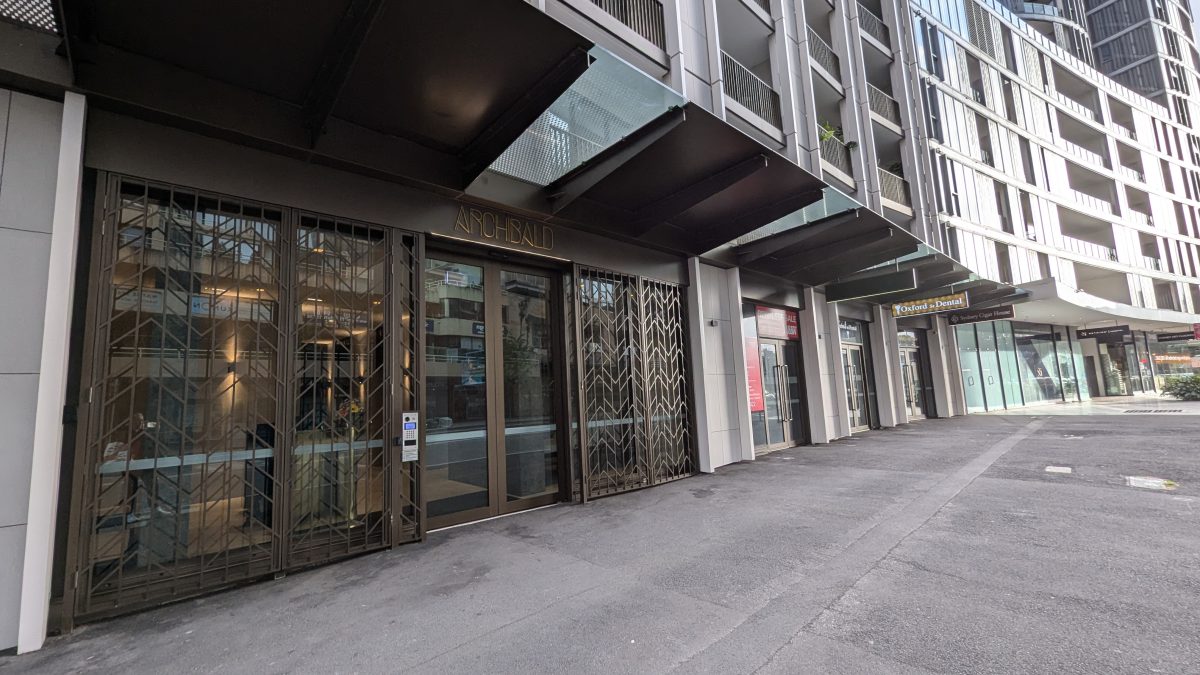
Bondi Junction
Located in the heart of the Eastern Suburbs, our Bondi Junction clinic is easily accessible by train, bus, and nearby parking.
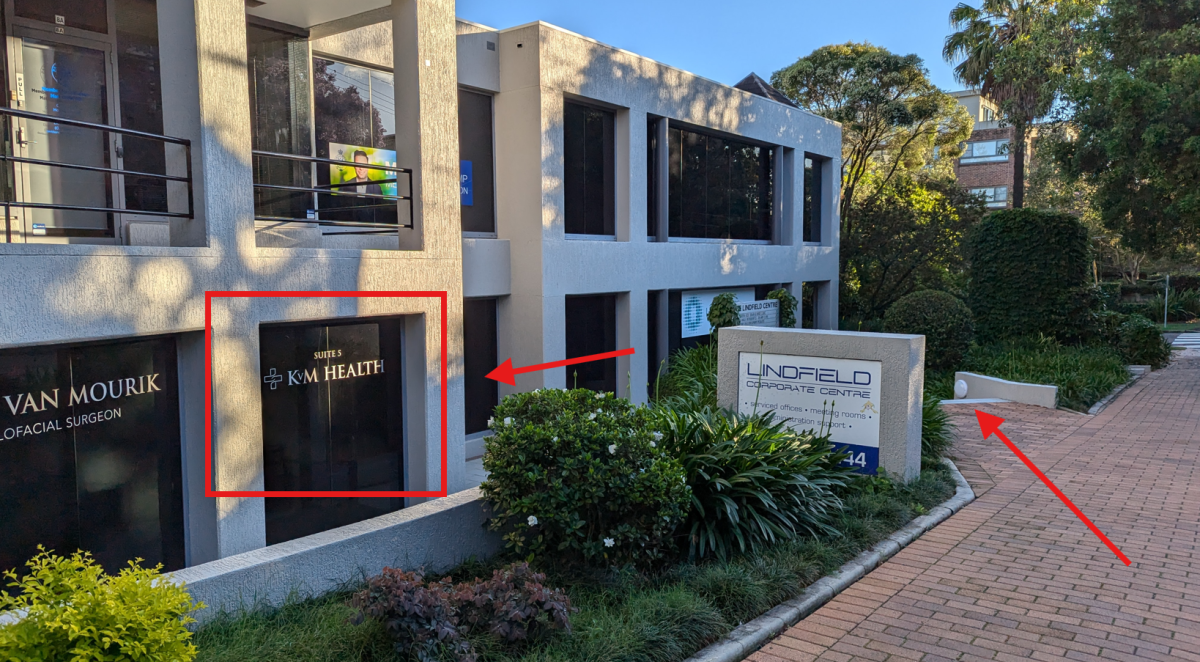
Lindfield
Conveniently positioned on the North Shore, our Lindfield clinic is close to public transport and offers parking options nearby.
